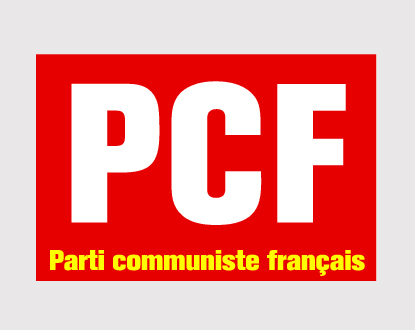Robert Injey (PC 06), on behalf of the communist and republican elected representatives of the Urban Communities of France, has sent us this contribution to the ongoing political debate. We are publishing it willingly, leaving full responsibility to its author for his remarks.
In the Face of Crisis: For Urban Communities Serving the Populations
Just a few weeks ago, the government and authorized commentators were promising us an end to the crisis.
Unfortunately, current events prove this was an illusion. When we observe speculation in the financial markets, or the evolution of employment, particularly industrial employment, not to mention simply the state of our fellow citizens’ wallets, a conclusion imposes itself: the liberal responses to this crisis are only worsening it.
In this crisis, many proponents of neo-liberal logic have taken solace in the existence of a “social shield” in France that allegedly cushioned the crisis’s blow. Among these is the President of the Republic, Nicolas Sarkozy. It is highly cynical to boast about the French “social shield” while he himself has consistently dismantled it methodically.
Take, for instance, the pension reform heavily opposed by the social movement and which the government still seeks to exacerbate.
Or the dismantling of the labor code, such as the intention to make Sunday work commonplace.
Finally, there are all the measures that place the burden of the crisis on households while protecting the wealthiest.
Regarding local authorities: by pursuing its policy of austerity and voluntary disengagement in many areas, by burdening local authorities with gifts to the business sector, such as the elimination of the professional tax, and by imposing on these same authorities a reform that breaks tools of democracy; Nicolas Sarkozy and his government are severely weakening a democratic and local tool serving our fellow citizens.
Yet at this advanced stage of the crisis, there is urgency.
Urgency to provide local authorities with the means to act, for essential public services to our fellow citizens, to strengthen genuine cooperation, for employment, for housing.
On this latter issue, as employees struggle increasingly to live off the fruit of their labor, they are forced to allocate an ever-growing portion of their income to housing. They are too often excluded from city centers, forced to multiply transport times, expenses, and the pollution that this entails.
The Abbé Pierre Foundation estimates that 500,000 homes need to be built per year for five years, of which 150,000 should be truly social housing. This requires massive investment from the State itself. The debate on the relevance of the SRU law is significant. It too must be reinforced and made truly binding.
The damage caused by the crisis also increases the need for quality, efficient, and affordable public services. This is the whole challenge of strengthening and rebuilding public services in terms of transport, water distribution, waste collection…
This vision guides communist elected officials when faced with metropolitan projects presented to them. Far too often, these projects are constructed only to place territories in competition that does not serve the populations’ cause. Uniting the forces of a single metropolis is only relevant if the priority of this maneuver remains meeting the social, human, and environmental objectives of those who live there.
It only has legitimacy if it sets as its goal and means of bringing democracy to life. This implies preserving democratic local spaces. Hence, communist elected officials reject any territorial expansion or broadening of powers that would be at the expense of communes, departments, and regions, thus distancing citizens from decisions.
Facing the crisis and responding to the population’s needs cannot be conceived without new and ambitious financial fiscal mechanisms. The latest events linked to the banking system crisis lead us to believe that these means require first implementing a social justice-oriented tax system, but also equipping ourselves with banking tools useful for our local governments’ major projects.
The AMF and ARF’s initiative for the creation of a banking hub demonstrates the urgency. But Dexia’s fate shows clearly that this banking tool must necessarily free itself from financial markets and the race for profitability that drives them.
It is a public hub our communities need. A hub that values investments creating jobs, housing, and public services.


